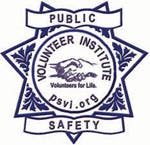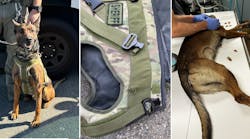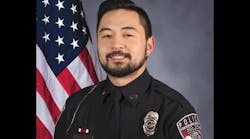Swine Flu, Bird Flu, SARs, West Nile Virus. In today's mobile society where new strains of airborne viruses and other contagious diseases spring up quickly, the need for a rapid and overwhelming response is critical to help contain the outbreak and protect our communities. With today's budget cuts, more and more police agencies are short staffed and medical facilities are either also short staffed or closing outright leaving our local communities in a dangerous situation in the event of a pandemic outbreak. The need to engage highly motivated, properly selected and well trained citizen volunteers to help free up your officers to respond to potential civil unrest situations during these times of need is critical. Doing so will help stem future outbreaks and in the end, the lives saved could very well be one of your own family or agency members. While the above suggestion is hard to argue with as more and more law enforcement agencies are either implementing or at least considering the implementation of police and sheriffs volunteer program, there is another side to volunteerism in the public safety sector that many are not aware of, but should.
Welcome to the Medical Reserve Corps
Founded after President Bush's 2002 State of the Union Address in which he asked all Americans to volunteer in support of their country, the Medical Reserve Corps was started as part of the overall Citizen Corps program which relies primarily on citizen volunteers to staff these units and assist public safety as needed. Medical Reserve Corps units, aka MRCs, are community-based and function as a way to locally organize and utilize volunteers who want to donate their time and expertise to prepare for and respond to emergencies and promote healthy living throughout the year. MRC volunteers supplement existing emergency and public health resources. Today there are over 800 MRC units across the nation with over 176,000 MRC volunteers within those units.
MRC units are staffed with professional volunteers such as physicians, nurses, pharmacists, dentists, veterinarians, and epidemiologists. MRC units focus on specific areas within their states that help strengthen the public health infrastructure of their communities. While tasked with a number of goals, a primary goal is to help respond in a time of need and disaster when our local medical facilities are overwhelmed.
When the southeast was battered by hurricanes in 2004, MRC volunteers in the affected areas helped communities by filling in at local hospitals, assisting their neighbors at local shelters, and providing first aid to those injured by the storms. During this two month period, more than 30 MRC units worked as part of the relief efforts, including those whose volunteers were called in from across the country to assist the American Red Cross (ARC) and the Federal Emergency Management Agency (FEMA).
During the 2005 Hurricane Season, MRC members provided support for American Red Cross health services, mental health and shelter operations. MRC members also supported the Health and Human Services branch of the federal government response and recovery efforts by staffing special needs shelters, Community Health Centers and health clinics, and assisting health assessment teams in the Gulf Coast region. More than 1,500 MRC members were willing to deploy outside their local jurisdiction on optional missions to the disaster-affected areas with their state agencies. Close to 200 volunteers from 25 MRC units were activated by HHS, and more than 400 volunteers from more than 80 local MRC units were activated to support American Red Cross disaster operations in Gulf Coast areas.
While the MRC volunteers are in the spotlight during these disasters helping people one on one, providing needed medical care, it's important not to overlook the important role law enforcement volunteers can play also. While not trained medical professionals, should a deadly or serious virus outbreak occur in or near your community, the potential for floods of people leaving, passing through or coming into your area of responsibility is very real. If this should occur, ask yourself this, do you have enough officers to handle the need for basic services such as traffic control to keep the flow of cars and trucks moving within your area? Chance are not in which case I would strongly suggest you consider training your existing volunteer staff on the basics of traffic control so everyone is in synch on what to do and how to do it. Simple as it may sound, standing in the middle of an intersection or roadway trying to direct hundreds, if not thousands of frantic motorist trying to flee an infected area will require some skills that not every volunteer you have on staff may be able to handle. Setting up scenarios to test their skills with a little stress thrown in might be a good idea, now, before it's too late.
For law enforcement agencies that have put off starting a volunteer program thinking there is no need or simply because you don't feel they can be of value to your agency, now might be a good time to reconsider that thinking and take an honest assessment of your ability to handle a viral outbreak in your area from the law and order stand point. Additionally it would behoove all agencies not to take the time to log on to the Medical Reserve Corps web site, see the below link, to find the unit closest to your community. At the same time, it might be worth your while to contact the unit commander to at least establish a working relationship and understanding of their capabilities should the day come when a medical disaster comes to your community. Like the Boy Scouts motto says, Be Prepared, I am Prepared.



